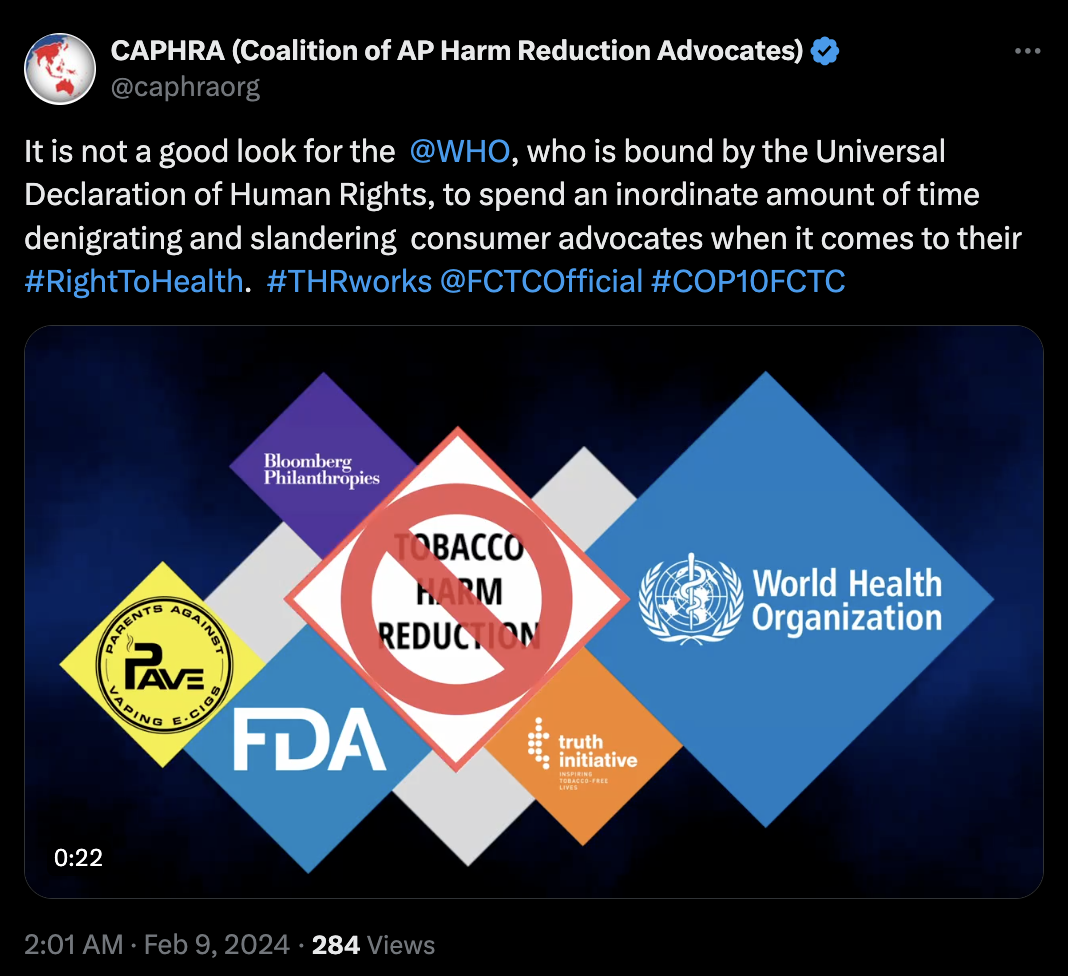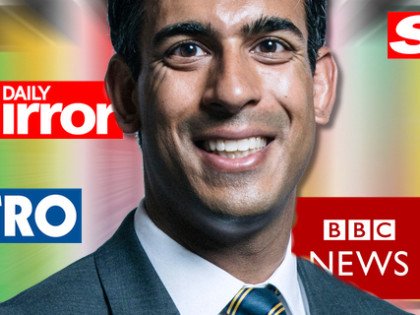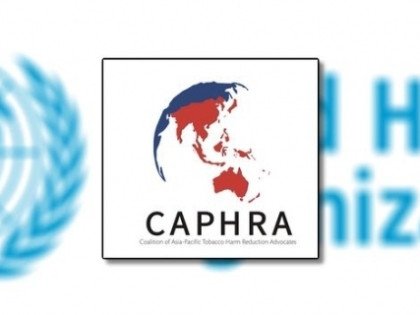The Coalition of Asia Pacific Tobacco Harm Reduction Advocates (CAPHRA) vehemently criticises this behaviour, underscoring the alarming implications for public discourse and policy transparency.
“This exclusionary approach to COP10 is a glaring testament to the WHO and FCTC's ongoing opacity and refusal to engage in open, evidence-based dialogue on tobacco harm reduction”, says Nancy Loucas, a public health policy expert and passionate advocate for tobacco harm reduction and executive coordinator of CAPHRA.
“Such actions not only undermine the principles of democratic accountability but also silence critical voices that challenge the status quo of tobacco control policies”, said Ms Loucas.

Moreover, the WHO and FCTC have been also granting unfettered access to Bloomberg-funded NGOs, which aggressively lobby against countries pursuing evidence-based tobacco harm reduction policies, including distributing specific disinformation around nicotine and cancer.
“This biased access further skews the narrative, allowing these organisations to bully nations into adopting prohibitionist measures that ignore the growing body of scientific evidence supporting harm reduction strategies”, added Ms Loucas.
CAPHRA is deeply concerned that these actions will stifle innovation and restrict access to safer nicotine alternatives, ultimately harming public health.
“The exclusion of media and critical voices from COP10 only serves to protect outdated and ineffective tobacco control measures, while ignoring the potential of harm reduction policies to significantly reduce smoking rates and save lives”, said Ms Loucas.
In light of these developments, CAPHRA calls for immediate action to ensure transparency and inclusivity in the tobacco control debate. The organisation urges governments and public health bodies to demand that the WHO and FCTC adopt an evidence-based approach to tobacco harm reduction, one that is open to scrutiny and informed by the latest scientific research.
CAPHRA's message is clear: the time for secrecy and exclusion in tobacco control is over.
“It is imperative that the WHO and FCTC embrace transparency, engage with all stakeholders, and prioritize policies that genuinely protect public health”, Ms Lucas said.
Dave Cross
Journalist at POTVDave is a freelance writer; with articles on music, motorbikes, football, pop-science, vaping and tobacco harm reduction in Sounds, Melody Maker, UBG, AWoL, Bike, When Saturday Comes, Vape News Magazine, and syndicated across the Johnston Press group. He was published in an anthology of “Greatest Football Writing”, but still believes this was a mistake. Dave contributes sketches to comedy shows and used to co-host a radio sketch show. He’s worked with numerous start-ups to develop content for their websites.
Join the discussion
Parliament
Further exchanges about vaping and tobacco harm reduction from the House of Commons consider sport sponsorship and recycling issues connected to vaping
Barnet Council Supports Vaping
Barnet Council has announced its support for adult vaping as “an effective aid to reduce tobacco smoking”
Media Coverage Indicates Shift
Could media coverage indicate that the UK Government is gauging public opinion and preparing to take some unscientific steps to confront its ‘teen use’ agenda?
Media Needs To Play Fair
The media needs to play fair COP on anti-tobacco work, says the Coalition of Asia Pacific Tobacco Harm Reduction Advocates






-listing400.jpg)




